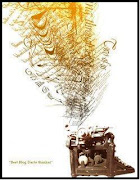Flat on my back, I lie and watch the crisscross of cobwebs across the light bulb. From one angle, it takes the shape of a cirrus cloud. From another: a butterfly. ‘Butterflies...’ I think out loud. Butterflies were my dead sister, Caroline’s, thing. She’d spent hours and hours poring over butterfly books. The Orangetip had been her favourite. She’d even won a school prize for a poem she’d written titled: The Bountiful Butterfly. ‘What does bountiful mean?’ she’d asked again and again while she’d been penning the poem. She’d only been six at the time.
Caroline visits sometimes. She simply materializes in my room without warning. Often: she’ll sit on the edge of my bed, or stand by the window gazing out at the surrounding farmland – where she’d exhausted countless hours exploring. ‘I’m off Butterfly scouting’ she’d yell as the door slammed behind her. On days like this, I can still hear her sunny voice. At other times: she lies beside me – as we are doing now – and we stare at the ceiling saying nothing. Since she died, Caroline hasn’t spoken to me. I talk to her all the time. But she says nothing. It’s as if there is a barrier between us. When I look at her, pools of sadness fill her eyes. She offers no tears, no words – nothing. In spite of this, her silence strengthens me. I’d rather have her wordless presence than nothing at all. Now: in the stillness of our thoughts, I squeeze her hand – the way I’ve always done.
Then: as if on cue, she bolts upright, stands up – shatters my reverie. With a finger, she urges me to follow. She wanders to her bedroom across the landing. As we enter, an abrupt sneeze escapes and is caught by my cupped hand. ‘Dust everywhere...’ I mumble to no one particularly. Her room is just as it’s always been; untouched since she died. It's been six months. Butterflies of all descriptions crowd the room. Butterfly patterned wallpaper, butterfly toys, posters and decor – resting and hanging from all directions. When she was around this Butterfly Zoo seemed to come alive. Buzzed with life. Nowadays, it felt... feels cold and lifeless. I notice Caroline open the wardrobe. She begins to rummage around for something. I watch her bent head; her pale curls bounce with the movement of her search. After many minutes, she retrieves a shoebox and places it on the bed. From it, she brings out a scrapbook-cum-photo album. Together we flick through each page. Inside: more butterflies. Images of: Orangetips, Brown Elfins, Edith’s Coppers, Cabbage Whites, and on and on. Each labelled in her scratchy scrawl. Eventually, from the back of the book, she pulls out a postcard. She stares hard at it, takes a deep breath, before handing it over to me. I fix my attention on the postcard settled in my grasp. But I am confused because it is blank. Her manner tells me that my eyes are deceiving me. I do not see what she knows. A secret lies in the note.
Today would have been Caroline’s tenth birthday. Unnoticed: she appears in the kitchen where my mum and I are busy pouring ingredients for a cake. She watches, wearing a strange expression, as eggs, sugar, flour, milk, cocoa and melted chocolate are poured and whipped in the bowl. Chocolate Fudge cake: our favourite. Mum stirs the lumpy mix until it is silken and smooth. I hover – waiting for mum’s nod; my permission to lick the thick rich mixture off the ladle. It’s not long before I’m lapping the sugary goo. With the corner of my eye I catch Caroline smacking her lips – plump and wet – I see her eyes are bright with green longing. In her halfway-house existence I wonder to myself: if hunger pangs are a thing of the past for her. It is peculiar that even though the room is full of our laughter, mine and Mum’s – a blinding sadness lingers. But somehow in this moment of reprieve, we are able to escape the sadness that has been eroding our life for months. Our pain suspended. This thought moves me to wrap my arms around my mum from behind, while she washes up. Caroline is settled next to us; leaning beside the sink, looking out the window – captivated by something: a bird, squirrel – I can’t tell what.
‘I sense her very strongly,’ Mum says with a short embarrassed laugh.
‘Perhaps she is here –,’ I whisper, tossing a glance in Caroline’s direction.
For a few seconds neither of us speaks – until Mum says: ‘Your father thinks it’s time we clear out her... Caroline’s... room...’ Her words tail off and dissolve with the air. My breath catches a little – as if the next word spoken will break the spell. It’s the first time Mum has mentioned Caroline by name since she died. Caroline has stopped what she is doing. She straightens herself, reaches over and places a kiss on our mum’s cheek. I see a slow smile spread across Mum’s face. ‘It’s as if she is in this room... standing right here,’ she says again, ‘maybe your father is right and it’s time to move on,’ she whispers.
After lunch and an indulgent slice of cake, Caroline and I walk up the lane to the village church. Once there: I sit on a patch of faded grass by her gravestone and pull out the postcard she handed me last week. Caroline stands at a distance, with the soft sunlight dancing around her like a honey shower. I turn back to the card in my hand. The one side remains blank, so I peer at the image on the other side. It is strange, because the longer I stare – the image becomes sharper – in the manner of a camera lens adjusting a blurred picture, bringing it into focus. At the centre: a delicate yellow butterfly. Circling it: six black butterflies. The more closely I look into the picture, the six butterflies appear puffed up, somewhat menacing. The dawning realisation emerges as a thread of clarity making a direct connection with six girls I knew. For almost two years these six had made Caroline’s life a misery. Even as my eyelids flutter and shut I can hear their taunts: ‘Butt Fly’ ‘Moth Girl’ ‘Caterpillar Caroline’. My anger and fists had only gotten me in trouble every time I had tried to protect her. I blink away the rising tears – squint slightly – and look up to find Caroline facing me, sitting cross-legged. Her sudden proximity startles me. She has been as soundless as the shadows emerging among the trees. Our gazes lock in a knowing look. An unexpected shiver travels through me. Something ugly – uglier than ugly – had happened that terrible day.
...to be continued in part 3...!
lunch
1 week ago









